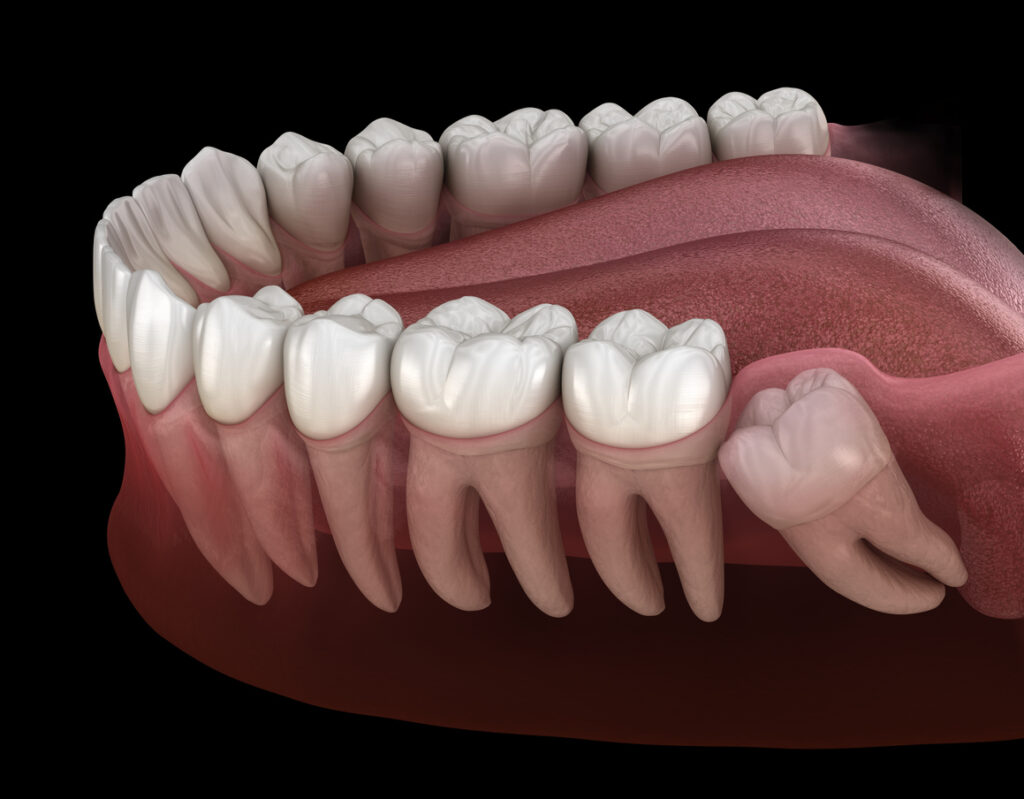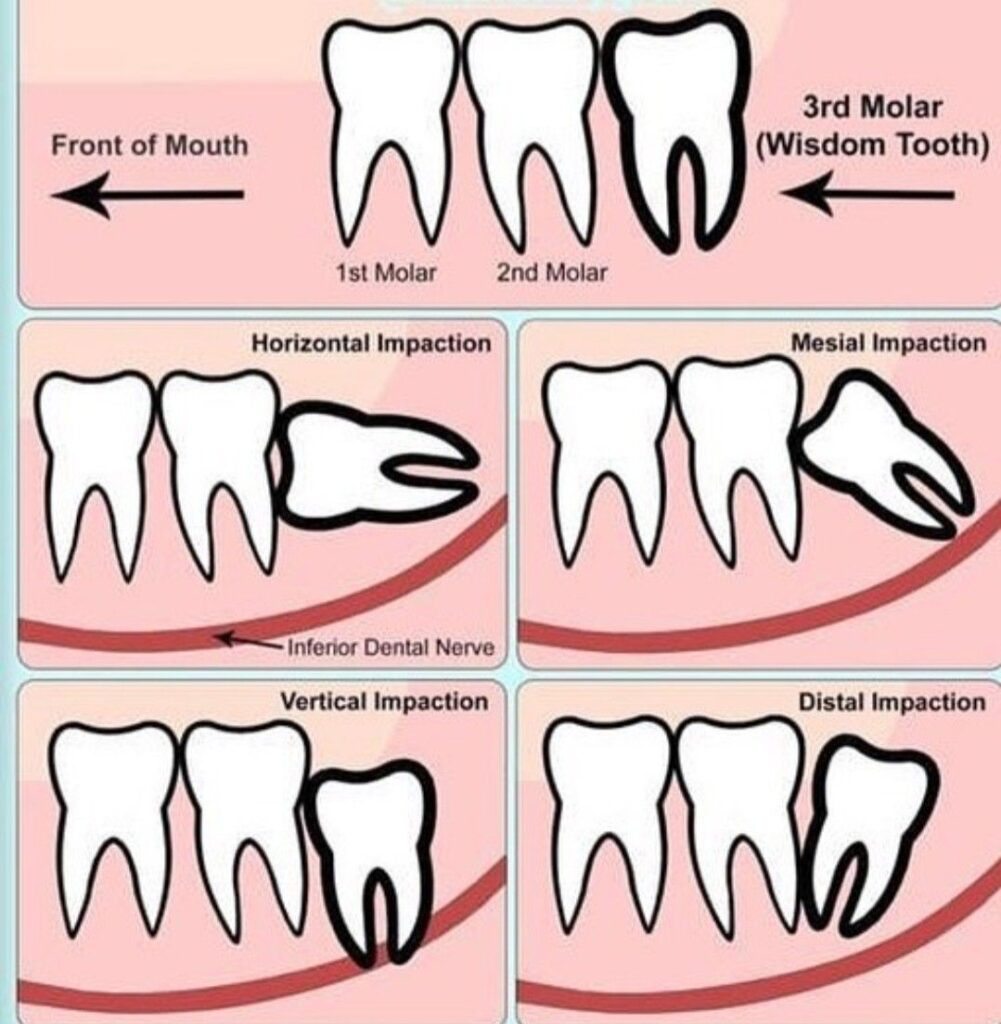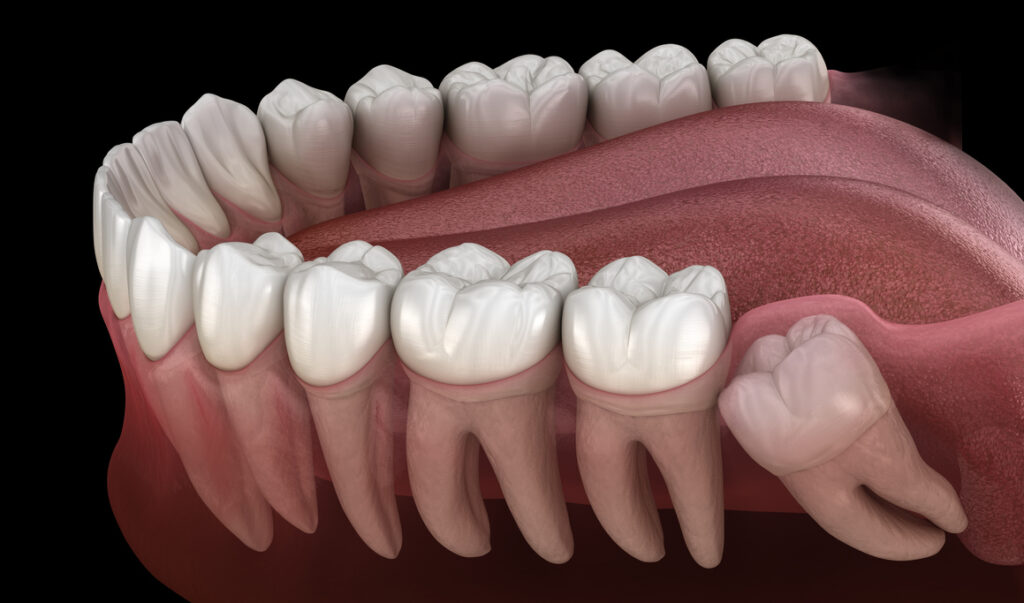
Have you ever heard the rumor that wisdom teeth can grow back after being extracted? If so, you’re not alone! This myth has circulated for years, leaving many people curious and even concerned about the fate of their third molars after the extraction.
The general answer is NO, your wisdom teeth cannot grow back after being extracted. When your wisdom tooth is being extracted, the tooth’s entire structure, including the crown and roots, is removed from the socket in the jawbone. After the dental procedure, the socket will heal and close up, and there are no remaining tooth structure left to regrow.
The wisdom teeth, also known as the third molars, are the last set of teeth to erupt. However, these teeth can cause a range of issues such as crowding, impaction, and even an infection. This has prompted many individuals to have them extracted once and for all.
But why do some claim that their wisdom teeth grew back? In fact, some internet users have seemingly ‘confirmed’ the myth, showing evidence of their wisdom teeth growing back after having it extracted. However, in these rare instances, it was actually second set of wisdom teeth that grew after the extraction of the first. This condition is known as hyperdontia and refers to the growth of supernumerary teeth.
In the rest of this article, we will delve into the world of wisdom teeth, explore reasons for their extraction, and elaborate more on whether the wisdom teeth can grow back after being removed.
What Are Wisdom Teeth?
Typically appearing between ages 17 and 25, these teeth are situated at the farthest corners of the mouth, with two in the upper jaw and two in the lower jaw. The term “wisdom teeth” is derived from the belief that they emerge during a phase in life when people are thought to gain wisdom through experience.
In our early evolutionary history, our human ancestors needed these extra molars to help them grind down tough, fibrous plant materials. However, as humans evolved and diets changed, wisdom teeth became less necessary and eventually became vestigial organs, meaning that they no longer serve a useful purpose. Our jaws have adapted to become smaller, leaving many individuals without adequate room to accommodate these additional molars.
As such, the wisdom teeth often cause dental issues due to their late arrival and limited space in the mouth:
- Impacted teeth: Wisdom teeth can become impacted when they do not have enough space to emerge properly. Impacted teeth can be either partially or fully encased within the gum or bone tissue. This can cause pain, swelling, and infection.
- Overcrowding: When wisdom teeth push their way into an already crowded mouth, they can force other teeth out of alignment, leading to misalignment or overcrowding.
- Infections and decay: Due to their location in the back of the mouth, wisdom teeth can be difficult to clean properly, making them more susceptible to tooth decay and gum disease.
- Cysts or tumors: In some cases, impacted wisdom teeth can lead to the development of cysts or tumors in the jawbone, which may require further treatment to address.

Because of these potential complications, extraction of the wisdom teeth is recommended as a preventive measure. Over the decades, extraction of the wisdom teeth have become a common dental procedure. On average, over 10 million wisdom teeth are extracted every year in the United States.
Do Wisdom Teeth Grow Back?
As mentioned previously, wisdom teeth do not grow back after being extracted. The human body does not have the ability to naturally replace teeth that have been extracted, including wisdom teeth. Once they are removed, there is no biological mechanism for them to grow back.
In cases where there are bone fragments left in the gum tissue after a wisdom teeth extraction, the fragment may erupt from the gum line after the surgery. This can cause a false perception that a wisdom tooth is growing back.
Now you may wonder, why do the adult teeth ‘grow’ out after the falling off of the baby teeth?
As a child grow and develop, their jaws expands and bone strengths. The adult teeth, which are located directly behind the baby teeth, grow and mature. This pushes against the root of the baby and stimulates the resorption of the baby teeth’s roots. The baby teeth is weakened and eventually falls out. Once a baby tooth is lost, the adult tooth can emerge into the vacated space.
As explained, the growing back of the dentition is merely a case of the adult teeth replacing the baby teeth and not the latter growing back stronger and bigger.
Why Do Some Grow a Second Set of Wisdom Teeth?
It is rare for someone to grow a second set of wisdom teeth, but it can occur in some individuals. This phenomenon is known as hyperdontia and refers to the existence of supernumerary teeth. The supernumerary teeth can occur in any part of the mouth, not just with wisdom teeth. However, it can give the false impression that it is a second wisdom teeth when it is in fact a supernumerary teeth.
According to a 2021 study on 5,000 dental patients, 1.06% were found to have supernumerary teeth; there is also no statistical difference between males and females in the prevalence of supernumerary teeth.

The exact cause of supernumerary teeth is not entirely understood, but scientists and dentists believe that it is caused by factors such as genetics, the development of additional tooth buds, or hyperactivity of the dental lamina which causes the formation of an extra teeth.
It is important to note that growing a second set of wisdom teeth is quite uncommon. If supernumerary wisdom teeth do develop, they may cause complications such as impaction, overcrowding, or other dental issues. Regular dental check-ups can help identify the presence of any extra teeth, and a dentist may recommend extraction or other treatment options if necessary.
Takeaway
In this article, we have explained in detail what a wisdom tooth is, and whether these third molars can grow back after being extracted. As we have discovered, the wisdom teeth, like all other human teeth, do not possess the ability to regenerate once removed.
We also touched on the rare occurrence of supernumerary teeth, which is the development of extra wisdom teeth. It is crucial to remember that these instances are exceptional and should not be confused with the regrowth of previously extracted wisdom teeth.
Any concerns related to wisdom teeth or potential supernumerary teeth should be addressed by a dental professional. They are able to identify and address the situation and recommend the appropriate treatment plans to resolve the any wisdom teeth related dental problem.







